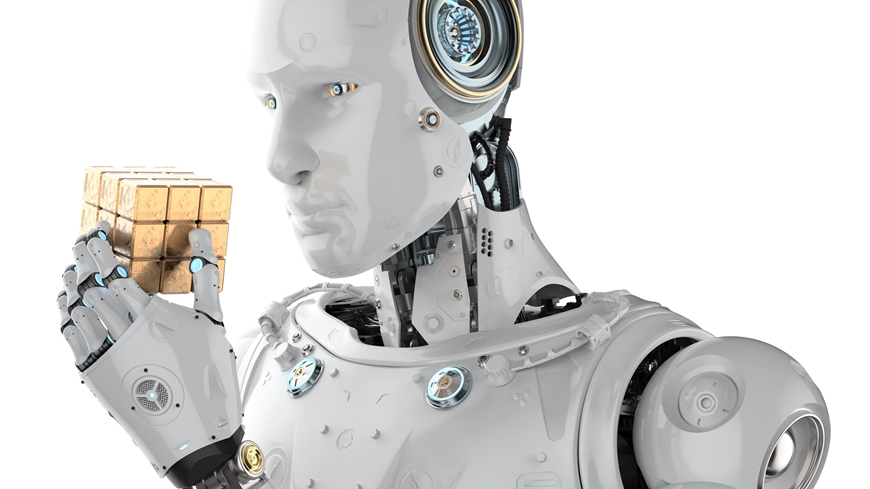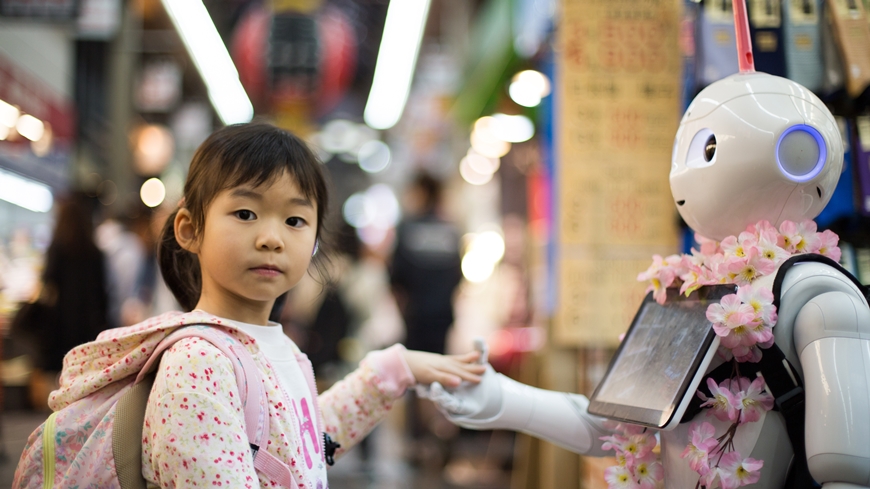Machine learning and society
The pros and cons of artificial intelligence

Artificial intelligence (AI) is not just about the irritatingly charming face of a «humanoid robot» gazing inquisitively at us. In stark contrast to the talking, humanoid machine Sophia, which is capable of learning and was introduced to the world by a Hong Kong company last year, we encounter AI every single day in a form that cannot be pinpointed physically, such as when our actions on the internet generate data, from which companies draw their conclusions. New data protection regulations just go to show how seriously politics is taking the effects of the digital transformation.
However, AI also begs questions of social relevance that go way beyond data protection. What if algorithms replace human decisions, trade on the stock exchange or influence voter habits? That’s why the Swiss Center for Technological Assessment (TA-Swiss) recently commissioned three research institutes to study the new challenges. Until 2019 a team at Empa is compiling specific action recommendations for Swiss politics and industry in this extremely dynamic field. The Digital Society Initiative at the University of Zurich (UZH) and the Institute of Technology Assessment of the Austrian Academy of Sciences (ÖAW) are also on board as project partners.
«We are currently examining the opportunities and risks for innovations, research and education that are associated with AI,» says Clemens Mader from Empa’s Technology and Society lab in St. Gallen, who is involved in the project along with Claudia Som and Lorenz Hilty. Scientists from UZH and ÖAW are also working on the areas of consumption, media, work and administration. Moreover, every sub-section will also be scrutinized in terms of ethical and legal aspects.
As soon as initial results are available, the researchers will study the fields of application in more depth and across disciplines in a dialog with national and international stakeholders. «This will enable us to piece together a picture of socially relevant topics from all necessary angles as opposed to assessing them inside a bubble of individual researchers and disciplines,» explains Mader.
One of the tasks facing the scientists is now to study possible applications of AI in scientific research and as a driver for innovation. «The use of learning algorithms should be discussed where large data quantities accumulate and the analysis of complex correlations is promising, for instance,» says the researcher. This is obviously the case when analyzing weather or traffic data. However, the use of AI-based processes could also be beneficial for industrial applications.How to prepare a society

Moreover, socially relevant issues are also to be addressed. How can a society be prepared to refine the field of AI critically and use it confidently? «This is where the education sector comes in,» says Mader. «It creates the researchers of the future – all the way from kindergarten to university.»
With this in mind, pilot projects for the school sector that already use AI applications, e.g. at a school in Silicon Valley, are being examined. Here, students learn with tablets and their learning behavior is observed by AI software. The programs offer suggestions as to how the children ought to be supported individually. «If the computer decides on the curriculum for school children, we must bear in mind that personal rights, data protection and even societal developments are also affected here,» says the researcher.
The worry that computers might not only be useful but also pose a risk for a society – all the way to a transformation in our understanding of democracy – is nothing new. The current study, however, seizes upon the topic precisely now as today’s devices have become incomparably powerful and thus the possibilities of machine analyses and learning progress are increasing. «If AI applications collect and evaluate enormous amounts of data, this will change many areas of our everyday lives, way beyond sectors like online shopping,» says Mader. This needs to be set in a political framework to handle risks, but also be in a position to exploit the innovative potential of AI.
Artificial intelligence will change our lives in the coming years – just as dramatically as the triumphant advance of smartphones. New opportunities are also opening up in materials research. Empa scientists use self-learning systems to process the pinpointed chemical modification of wood, blast rocks with electrical charges and monitor the quality of 3D-printed metallic workpieces – while they are being produced. In this issue of EmpaQuarterly you will see how “machine learning” works in general and what it can achieve especially in the field of materials science. Empa Quarterly # 61 / 2018 /
-
Share





